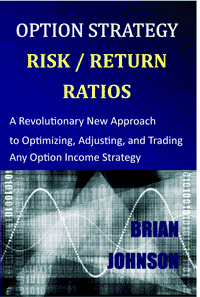The US economic news continued to deteriorate last week, but the market was focused exclusively on the Greek vote and failed to acknowledge the latest economic developments. The following post provides an overview of the major economic releases from last week as well as my current summary market indicator score.
Economic Data From the Week Ending 6/15/2012
Here is a partial list of the US economic reports from last week:
Inflation/Deflation:
- Export Prices ex-ag -0.5%, no expectation provided, down 0.7% from prior month
- Import Prices ex-oil -0.1%, no expectation provided, 0.3% lower than prior month
- PPI -1.0%, 0.3% lower than expectation, 0.8% lower than prior month
- CPI -0.3%, 0.1% lower than expectation, 0.3% lower than prior month
Consumer:
- Retail Sales -0.2%, equal to expectation, prior month revised lower by 0.3%
- Retail Sales ex-auto -0.4%, 0.3% below expectation, prior month revised lower by 0.4%
- Michigan Sentiment 74.1, 2.9 below expectation, down 5.2 from prior month
Business & Manufacturing:
- Empire Manufacturing 2.3, 11.2 below expectation, 14.8 lower than prior month
- Industrial Production -0.1%, 0.2% below expectation, down 1.1% from prior month
Employment:
- Initial Unemployment Claims, 386K, 11K worse than expectation, prior month revised up 3K
The source for the above economic data was www.Briefing.com.
Evidence of deflation in PPI, CPI, import prices, and export price is particularly troubling. Similar deflationary pressures were evident in prior recessionary environments, including 2008. Retail sales were negative for the second month in a row and consumer sentiment is beginning to slide.
Empire Manufacturing was down sharply from last month and came in far below expectation, which raises the stakes for this week's Philadelphia Fed release on Thursday. Employment appeared to be improving earlier in 2012, but data revisions and recent releases now suggest that the employment environment is weakening as well.
In almost every case, last week's economic data came in worse than the market's expectation. In addition, the trend was consistently negative relative to the prior period, adding further evidence that the US economy is slowing.
Summary Market Indicator Score
While it is useful to look at individual economic reports and technical indicators, it can be difficult to combine all of that data and form an objective, consistent appraisal of the overall economic environment. For that reason, I calculate a summary market indicator score, which combines the bullish or bearish readings from 34 separate data series.
The bullish and bearish readings are based on intermediate and long-term technical indicators, oversold and overbought oscillators, relative strength ratios, market breadth statistics, proprietary trading signals, various economic data series, mutual fund flows, Economic Cycle Research Institute's (ECRI) leading indicator series, and the commitment of traders data. I calculate a weighted average of the readings for each data series to come up with a single score that falls between -100 (max bearish) and +100 (max bullish).
As of June 15, 2012, the summary market indicator score was -15.6, which is still bearish, but higher than the reading from two weeks ago. I do not use this score directly in my trading strategies. Instead, I use the score to provide a consistent, unbiased reading on the direction of the economy and the market.
Current Conditions
The market rallied late last week in anticipation of the Greek vote. As a result, the equity market is no longer oversold. The Asian markets were up significantly last night after a victory for the pro-bailout party New Democracy in Greece. As I write this, the US equity futures markets are all trading modestly lower than Friday's closing levels, despite the "good" news in Greece.
European markets are currently mixed, with the UK, French, and German markets slightly higher and the Italian and Spanish markets both down more than 1.5%. Yields for Italy had dropped below 6.00% last week, but are now trading at 6.04%. Yields for Spain have soared to 7.13%, even with the pro-bailout victory in Greece. - not good news for Europe.
We will gain additional insight into prospective Federal Reserve action on Wednesday of this week, which could further influence the market in the near-term. However, with the Greek vote behind us, market participants will eventually return their focus to the economy - and they may not like what they see
Feedback
Your comments, feedback, and questions are always welcome and appreciated. Please use the comment section at the bottom of this page or send me an email.
Do you have any questions about the material? What topics would you like to see in the future?
Referrals
If you found the information on www.TraderEdge.Net helpful, please pass along the link to your friends and colleagues or share the link with your social network.
The "Share / Save" button below contains links to all major social networks. If you do not see your social network listed, use the down-arrow to access the entire list of social networking sites.
Thank you for your support.
Brian Johnson
Copyright 2012 - Trading Insights, LLC - All Rights Reserved.
.
About Brian Johnson
I have been an investment professional for over 30 years. I worked as a fixed income portfolio manager, personally managing over $13 billion in assets for institutional clients. I was also the President of a financial consulting and software development firm, developing artificial intelligence based forecasting and risk management systems for institutional investment managers.
I am now a full-time proprietary trader in options, futures, stocks, and ETFs using both algorithmic and discretionary trading strategies.
In addition to my professional investment experience, I designed and taught courses in financial derivatives for both MBA and undergraduate business programs on a part-time basis for a number of years. I have also written four books on options and derivative strategies.












More Weak US Economic Data Last Week
The US economic news continued to deteriorate last week, but the market was focused exclusively on the Greek vote and failed to acknowledge the latest economic developments. The following post provides an overview of the major economic releases from last week as well as my current summary market indicator score.
Economic Data From the Week Ending 6/15/2012
Here is a partial list of the US economic reports from last week:
Inflation/Deflation:
Consumer:
Business & Manufacturing:
Employment:
The source for the above economic data was www.Briefing.com.
Evidence of deflation in PPI, CPI, import prices, and export price is particularly troubling. Similar deflationary pressures were evident in prior recessionary environments, including 2008. Retail sales were negative for the second month in a row and consumer sentiment is beginning to slide.
Empire Manufacturing was down sharply from last month and came in far below expectation, which raises the stakes for this week's Philadelphia Fed release on Thursday. Employment appeared to be improving earlier in 2012, but data revisions and recent releases now suggest that the employment environment is weakening as well.
In almost every case, last week's economic data came in worse than the market's expectation. In addition, the trend was consistently negative relative to the prior period, adding further evidence that the US economy is slowing.
Summary Market Indicator Score
While it is useful to look at individual economic reports and technical indicators, it can be difficult to combine all of that data and form an objective, consistent appraisal of the overall economic environment. For that reason, I calculate a summary market indicator score, which combines the bullish or bearish readings from 34 separate data series.
The bullish and bearish readings are based on intermediate and long-term technical indicators, oversold and overbought oscillators, relative strength ratios, market breadth statistics, proprietary trading signals, various economic data series, mutual fund flows, Economic Cycle Research Institute's (ECRI) leading indicator series, and the commitment of traders data. I calculate a weighted average of the readings for each data series to come up with a single score that falls between -100 (max bearish) and +100 (max bullish).
As of June 15, 2012, the summary market indicator score was -15.6, which is still bearish, but higher than the reading from two weeks ago. I do not use this score directly in my trading strategies. Instead, I use the score to provide a consistent, unbiased reading on the direction of the economy and the market.
Current Conditions
The market rallied late last week in anticipation of the Greek vote. As a result, the equity market is no longer oversold. The Asian markets were up significantly last night after a victory for the pro-bailout party New Democracy in Greece. As I write this, the US equity futures markets are all trading modestly lower than Friday's closing levels, despite the "good" news in Greece.
European markets are currently mixed, with the UK, French, and German markets slightly higher and the Italian and Spanish markets both down more than 1.5%. Yields for Italy had dropped below 6.00% last week, but are now trading at 6.04%. Yields for Spain have soared to 7.13%, even with the pro-bailout victory in Greece. - not good news for Europe.
We will gain additional insight into prospective Federal Reserve action on Wednesday of this week, which could further influence the market in the near-term. However, with the Greek vote behind us, market participants will eventually return their focus to the economy - and they may not like what they see
Feedback
Your comments, feedback, and questions are always welcome and appreciated. Please use the comment section at the bottom of this page or send me an email.
Do you have any questions about the material? What topics would you like to see in the future?
Referrals
If you found the information on www.TraderEdge.Net helpful, please pass along the link to your friends and colleagues or share the link with your social network.
The "Share / Save" button below contains links to all major social networks. If you do not see your social network listed, use the down-arrow to access the entire list of social networking sites.
Thank you for your support.
Brian Johnson
Copyright 2012 - Trading Insights, LLC - All Rights Reserved.
.
About Brian Johnson
I have been an investment professional for over 30 years. I worked as a fixed income portfolio manager, personally managing over $13 billion in assets for institutional clients. I was also the President of a financial consulting and software development firm, developing artificial intelligence based forecasting and risk management systems for institutional investment managers. I am now a full-time proprietary trader in options, futures, stocks, and ETFs using both algorithmic and discretionary trading strategies. In addition to my professional investment experience, I designed and taught courses in financial derivatives for both MBA and undergraduate business programs on a part-time basis for a number of years. I have also written four books on options and derivative strategies.